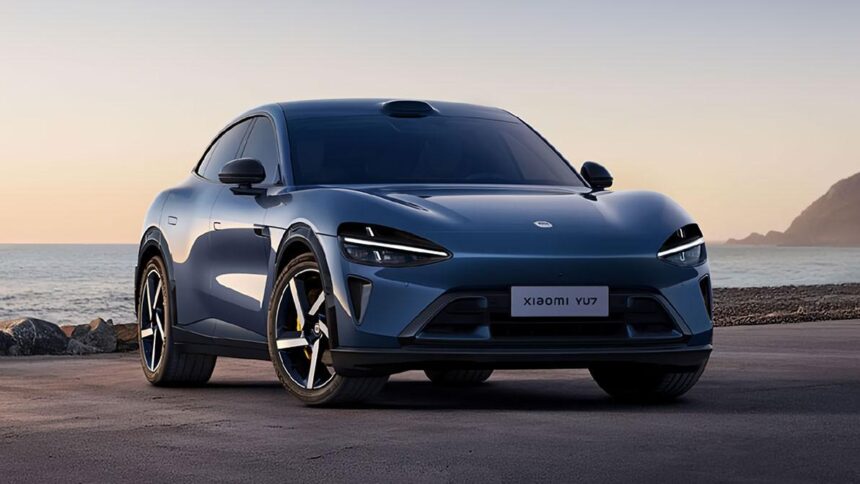Xiaomi has announced a record-breaking first-quarter revenue and profit for the period ending March 31. The company reported a 47% year-on-year increase in revenue, reaching 111.3 billion yuan ($15.48 billion). This performance exceeded analysts’ expectations, with the average forecast set at 107.6 billion yuan for SUV.
Revenue Surge Marks Strong Start for 2025
The company’s adjusted net profit surged 65%, reaching 10.7 billion yuan for the quarter. This marked the first time Xiaomi reported net profit above 10 billion yuan. The result was also better than the 8.96 billion yuan analysts had predicted, according to LSEG data.
Xiaomi’s ongoing shift toward higher-end products is paying off. The company has expanded beyond smartphones into home appliances, electric vehicles, and more. President Lu Weibing discussed the company’s strategy during a conference call, emphasizing the positive results stemming from its focus on premium products.
Read More: Nuclear Energy Comeback in Europe Gains Momentum Amid Energy Independence Push
Xiaomi’s Shift to Premium Products Drives Strong Results
Xiaomi, the world’s third-largest smartphone maker, has also ventured into the electric vehicle market. The company introduced its new electric SUV, the YU7, last week. The vehicle is set to launch in July, and initial feedback suggests it has a broader target market than its previous model, the SU7.
The company has not disclosed the price of the YU7 yet. However, it hinted that the vehicle would be priced 60,000-70,000 yuan higher than Tesla’s best-selling Model Y, which is priced from 263,500 yuan ($36,574). The YU7’s enhanced configurations are expected to position it as a strong competitor to Tesla’s Model Y.
Xiaomi’s YU7 Electric SUV Set to Compete with Tesla’s Model Y
Xiaomi’s electric vehicle business also generated substantial revenue in the first quarter. The company recorded 18.1 billion yuan in revenue, with 75,869 SU7 sedans delivered. However, the EV business posted an adjusted net loss of 0.5 billion yuan related to its new ventures and electric vehicle initiatives.
Analysts have noted a decline in new EV orders since the end of March. A fatal highway crash involving an SU7 in driving-assistance mode raised concerns about the vehicle’s safety. Xiaomi has faced additional scrutiny due to customer complaints of false advertising.
Challenges in the EV Sector Despite Strong Revenue Growth
Earlier this month, Xiaomi apologized for its “not clear enough” marketing regarding the SU7’s features. Despite these challenges, Xiaomi’s stock has rebounded since April, pushing its market value to about $170 billion. This market capitalization surpasses that of BYD, China’s largest electric vehicle maker, which stands at around $161 billion.
Xiaomi’s smartphone division also saw growth in the first quarter. The company shipped 41.8 million smartphones globally, marking a 3% year-on-year increase. Xiaomi retained its position as the third-largest smartphone maker globally, with a market share of 14.1%, according to Canalys data.
Read More: Stargate UAE Set to Surpass World’s Largest Data Centres
Xiaomi’s Smartphone Business Continues to Grow Alongside EV Ventures
The company’s strong financial performance highlights the success of its diversified strategy. Xiaomi’s move into premium products and new industries like electric vehicles appears to be driving its growth. The company’s focus on innovation and expanding its product lineup is solidifying its position in the competitive tech and automotive markets.
Xiaomi’s success has set a high bar for the tech industry. The company is continuing to expand its reach and enhance its offerings, with future growth expected from both its smartphone and electric vehicle businesses. The company’s ability to adapt to changing market dynamics and meet consumer demand is playing a key role in its financial success.
Conclusion
The launch of the YU7 electric SUV in July will be an important test for Xiaomi’s entry into the EV market. With strong competition from Tesla, Xiaomi will need to differentiate its products and ensure quality control to maintain its momentum in the automotive sector. The company’s ability to overcome its recent challenges and continue its growth trajectory will determine its long-term success.
Click Here for more business news.






